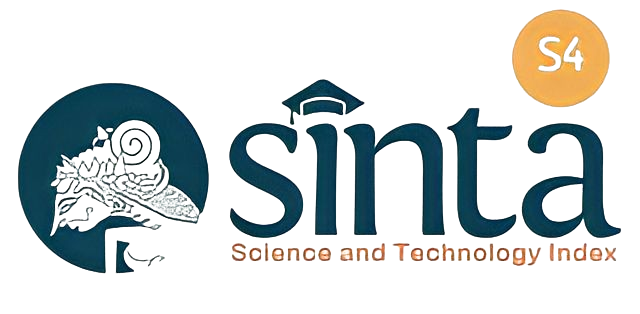Strategi Alternatif Pembangunan Manusia Melalui Parawisata Halal di Indonesia Pasca Covid-19
DOI:
https://doi.org/10.14421/jmes.2022.011-01Keywords:
Strategy, Halal tourism, SWOT analysisAbstract
Halal tourism in Indonesia is the largest tourism in the world that presents a lot of natural beauty, culture, and comfortable places of worship. In the economic field, halal tourism contributes significantly to state income, which is around 10.4% and employment of around 313 million people. This proves that halal tourism in Indonesia has a positive effect on national income and increases human development. But that was all achieved before the Covid-19 outbreak hit Indonesia. During the pandemic, halal tourism objects experienced a drastic decline. Many halal tourism sub-sectors such as airlines, lodging, and places to eat are feeling the impact. For this reason, an alternative and complex strategy concept is needed to restore the existence of halal parawista in Indonesia. The right method to respond to the author's goal is a qualitative descriptive method with the help of a SWOT analysis consisting of strengths, weaknesses, opportunities, and threats. The results obtained in this article are: first, the strength of Indonesian halal tourists is quite large because it has many beautiful natural destinations, easy access to tourist attractions, the availability of many places of worship, lodging and eating places that have been tested for halalness, and the friendliness of the Indonesian population. in welcoming incoming tourists; Secondly, from the side of weakness, health protocols are considered too strict, such as mandatory vaccines, wearing masks, maintaining distance, and the like, thereby reducing tourist intentions. Another weakness is the lack of human resources in managing halal tourism, as well as the lack of government facilities in assisting small and medium enterprises in marketing their products; the third is seen from the opportunities that can be utilized by the government, namely focusing on the six basic needs of Muslim tourists, namely maintaining halal food, prayer facilities, Ramadan services, water-friendly bathrooms, no non-halal activities, and improving recreational facilities; Fourth, in terms of threats, the government needs to pay attention to competition with neighboring countries, focus on halal certification, and also the spike in Covid-19 cases. The analysis above is believed to be an alternative strategy in increasing halal tourism in Indonesia so that it makes a major contribution to the country, especially in its human development.
References
Abdallah, A., Rahem, M. A., & Pasqualone, A. (2021). The multiplicity of halal standards: a case study of application to slaughterhouses. Journal of Ethnic Foods, 8(1). https://doi.org/10.1186/s42779-021-00084-6
Adityaji, R. (2018). Formulasi Strategi Pengembangan Destinasi pariwisata dengan menggunakan metode analisis swot: studi kasus kawasan Pecinan Kapasan Surabaya. Jurnal Pariwisata Pesona, 3(1), 19–32. https://doi.org/10.26905/jpp.v3i1.2188
Adriana, N. (2021). Jurnal Middle east and islamic studies dampak pandemi terhadap pariwisata halal Jakarta. Jurnal Middle East and Islamic Studies, 8(1). https://doi.org/10.7454/meis.v8i1.131
Basit, A. (2022). Strategi pengembangan pariwisata halal di Kuta Mandalika Kabupaten Lombok Tengah. Tourism Scientific Journal, 7(1), 130–154. https://doi.org/10.32659/tsj.v7i1.143
Carollina, R., & Triyawan, A. (2019). Analysis of halal tourism development strategy in east java province. Journal of Islamic Economics and Philanthropy, 2(01), 234–250. https://doi.org/10.21111/jiep.v2i01.3099
Chandler, A. D. (1962). Strategy and structure: chapters in the history of the industrial empire. The M.I.T Press, 59, 1–9.
Darojat, P. A., & Abdurahim, A. (2022). Sharia hotel management strategy in facing covid-19 pandemic (a case study of namira sharia hotel yogyakarta). Proceedings of the International Conference on Sustainable Innovation Track Accounting and Management Sciences (ICOSIAMS 2021), 201(Icosiams 2021), 164–167. https://doi.org/10.2991/aebmr.k.211225.023
David, F. R. (2010). Strategic manajemen. Jakarta: Selamba Empa.
Duman, T. (2012). The value of islamic tourism : islam and civilisational renewal, (July), 12–13.
El-Gohary, H. (2020). Coronavirus and halal tourism and hospitality industry: Is it a journey to the unknown? Sustainability (Switzerland), 12(21), 1–26. https://doi.org/10.3390/su12219260
Faridah, H. D. (2019). Halal certification in Indonesia; history, development, and implementation. Journal of Halal Product and Research, 2(2), 68. https://doi.org/10.20473/jhpr.vol.2-issue.2.68-78
Fuertes, G., Alfaro, M., Vargas, M., Gutierrez, S., Ternero, R., & Sabattin, J. (2020). Conceptual framework for the strategic management: a literature review - descriptive. Journal of Engineering (United Kingdom), 2020. https://doi.org/10.1155/2020/6253013
Gurel, E. (2017). SWOT anlaysis: theoretical review. the journal of international social research, 135, 989–1011. Retrieved from https://doi.org/10.1016/j.addr.2018.07.012%0Ahttp://www.capsulae.com/media/Microencapsulation - Capsulae.pdf%0Ahttps://doi.org/10.1016/j.jaerosci.2019.05.001
Indonesian Ministry of National Planning. (2019). Indonesia islamic economic masterplan 2019-2024. Indonesian Ministry of National Development Planning, 1–400.
Jaelani, A. (2017a). Halal tourism industry in indonesia: potential and prospect. Electronic Journal. https://doi.org/10.2991/aebmr.k.201116.027
Jaelani, A. (2017b). Halal tourism industry in indonesia: potential and prospects. SSRN Electronic Journal, (76235). https://doi.org/10.2139/ssrn.2899864
KNEKS, & IAEI. (2020). Laporan perkembangan pariwisata ramah muslim daerah. Komite Nasional Ekonomi Dan Keuangan Syariah (KNEKS), 72 pages.
Mackay, D., & Zundel, M. (2017). Recovering the divide: a review of strategy and tactics in business and management. International Journal of Management Reviews, 19(2), 175–194. https://doi.org/10.1111/ijmr.12091
Meirezaldi, O. (2020). Halal tourism industry in indonesia: proceedings of the 2nd Annual International Conference on Business and Public Administration (AICoBPA 2019) Halal, 154(AICoBPA 2019), 126–129. https://doi.org/10.2991/aebmr.k.201116.027
Minardi, A., Taufik, T., Afriantari, R., & Hasanah, N. U. (2020). Indonesian tourism diplomacy to India. Indonesian Journal of Tourism and Leisure, 1(1), 1–13. https://doi.org/10.36256/ijtl.v1i1.83
Muawanah, Fauziah, N., Toha, M., & Manaku, A. (2021). The survival strategy of halal tourism. Indonesian Interdisciplinary Journal of Sharia Economics (IIJSE), 3(2), 165–177.
Musfiroh, A., Mugiyati, M., & Iman, A. K. N. (2021). Strategies to improve halal tourism in indonesia during the pandemic covid-19. Jurnal Ilmiah Ekonomi Islam, 7(2), 1048–1052. https://doi.org/10.29040/jiei.v7i2.2533
Nanno, M. (coord. . (2020). The impact of the COVID-19 pandemic on the tourism sector in Latin America and the Caribbean , and options for a sustainable and resilient recovery Thank you for your interest in this ECLAC publication. United Nations Publication, 157, 1–7. Retrieved from https://repositorio.cepal.org/handle/11362/46502
Pearce, R. (2011). Manajemen strategi-formulasi, implimentasi dan pengendalian. Jakarta: Salemba Empat., 2011.
Peristiwo, H. (2021). Impact of the covid-19 pandemic on indonesia halal tourism transportation. Journal of Digital Marketing and Halal Industry, 3(1), 19–36. https://doi.org/10.21580/jdmhi.2021.3.1.7814
Porter, M. (2008). Competitive advantage: creating and sustaining superior performance. Simon and Schuster, New York, NY, USA,.
Rangkuti, F. (2015). Teknik membedah kasus bisnis analisis swot. PT. Gramedia Pustaka Utama. Jakarta, 246.
Reece, B., & Hampton, T. (2018). Strengths, weaknesses, opportunities and threats analysis for riverside community college distric. District Strategic Planning Swot Analysis Team.
Riadhussyah, M. (2020). Pengembangan sumber daya manusia di bidang wisata halal dalam menghadapi revolusi industri 4.0. Jurnal MSDA (Manajemen Sumber Daya Aparatur), 8(1), 1–13. https://doi.org/10.33701/jmsda.v8i1.1164
Rizqi Rahmawati, K. A. P. (2020). Potensi pemulihan pariwisata halal di ponorogo (analisa strategi pada masa pandemi covid-19). Journal of Islamic Economics, 1, 97–110.
Santoso, L., & Cahyani, Y. T. (2020). Pengaturan wisata halal untuk pembangunan daerah: transformasi industri halal di era disrupsi. Supremasi Hukum: Jurnal Kajian Ilmu Hukum, 9(1), 73.
Sarbah, A., & Otu-Nyarko, D. (2014). An overview of the design school of strategic management (strategy formulation as a process of conception). Open Journal of Business and Management, 02(03), 231–249. https://doi.org/10.4236/ojbm.2014.23029
Satriana, E. D., & Faridah, H. D. (2018). Halal tourism: development, chance and challenge. Journal of Halal Product and Research, 1(2), 32. https://doi.org/10.20473/jhpr.vol.1-issue.2.32-43
Siagian. (2007). Manajemen strategic. Jakarta: Balai Pustaka.
Sobhani, P., Veisi, H., Esmaeilzadeh, H., Sadeghi, S. M. M., Marcu, M. V., & Wolf, I. D. (2022). Tracing the Impact Pathways of COVID-19 on Tourism and Developing Strategies for Resilience and Adaptation in Iran. Sustainability (Switzerland), 14(9). https://doi.org/10.3390/su14095508
Syah Putra, M. F., & Tucunan, K. P. (2021). The concept of halal tourism and the fulfillment of muslim tourist needs in halal tourism. Halal Research Journal, 1(2), 56–62. https://doi.org/10.12962/j22759970.v1i2.52
UNCTAD. (2021). Covid-19 and Tourism an update. Covid-19 and Tourism an Update, (June), 1–23. Retrieved from https://unctad.org/system/files/official-document/ditcinf2021d3_en_0.pdf
Wardi, Y., & Trinanda, O. (2022). Halal tourism and coronavirus: understanding the influence of halal reputation and fear of COVID-19 on tourist’s revisit intention. Journal of Islamic Accounting and Business Research, ahead-of-p(ahead-of-print). https://doi.org/10.1108/JIABR-11-2021-0290
Yunus, E. (2016). Manajamen strategis. Penerbit Andi, 25.











